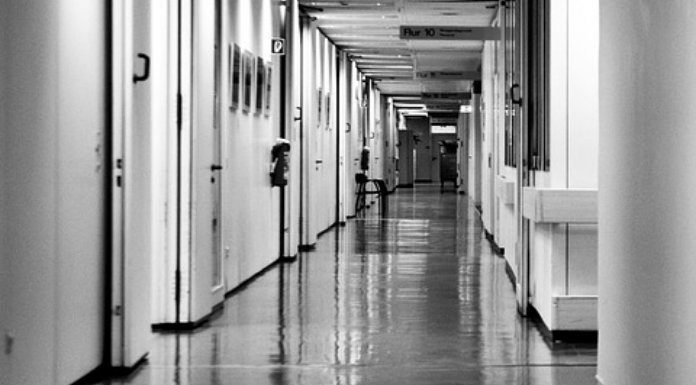The UL Hospitals Group is again urging people to consider all their care options before attending the Emergency Department at the region’s main hospital.
It comes as the level of overcrowding surged at University Hospital Limerick, with 81 patients waiting for beds yesterday, prompting the INMO to call for urgent State intervention.
The UL Hospitals group says there has been considerable demand for inpatient beds from significant numbers of very sick, non-COVID patients, some with conditions that have been complicated due to delays in seeking medical treatment.
This is in addition to the continuing demand for beds from people who have active COVID-19 infection and those who are recovering from COVID illness.
98 new beds have opened at UHL over the past year, but hospital management say capacity continues to be pressured by challenges presented by the threat of covid, high levels of demand and physical distancing guidelines.
Hospitals are also constrained in their ability to transfer patients between hospitals, or to the likes of nursing homes, due to levels of community transmission of the virus, and outbreaks in healthcare settings.
People are being urged to consider their care options before attending the ED including contacting their GP, GP out of hours services, local pharmacies and utilising the injuries unit at Ennis General.
Anyone with symptoms of COVID-19, is being warned not go to the Emergency Department, and to instead ring their GP for advice and avoid contact with other people by self-isolating.
Statement from UL Hospitals Group
As has been the case throughout the month of March, University Hospital Limerick is experiencing considerable demand for inpatient beds from significant numbers of very sick, non-COVID patients, in some cases whose conditions have been complicated due to delays in seeking medical treatment. This is in addition to the continuing demand for inpatient beds from people who have active COVID-19 infection and those who have been de-listed but continue to recover from COVID illness.
People attending the Emergency Department are doing so in high numbers, regularly exceeding 200 per day, as compared with the average daily attendances of 197 during 2019. For the past month, attendances of 200 and more at the ED have been the norm rather than the exception.
Average weekday attendances at the department are running at approximately 211 for the month of March. The last two weeks alone have seen some of our highest ever weekday ED attendances, including 246 (Monday 22nd); 229 (Tuesday 23rd); 248 (Thursday 18th); 233 (Friday 19th); 252 (Monday 22nd); and 221 (Tuesday 23rd). Attendances continued to exceed 200 for the rest of last week.
While there are high numbers of patients waiting for inpatient beds, not all are waiting on trolleys in the Emergency Department. Most are in designated bed spaces (cubicles, bays and beds) in the ED (our COVID-19 emergency admission pathway), and in the non-COVID emergency admission stream of the Acute Medical Assessment Unit and Acute Surgical Assessment Unit. Admitted patients are also waiting in designated surge capacity.
However, none of this is to minimise the upset and inconvenience patients feel when they experience lengthy wait times. Noreen Spillane, Chief Operations Officer, UL Hospitals Group, said: “We regret that any patient has to wait for a bed. We are focusing on all aspects of patient flow including access to diagnostic tests that help ensure patient discharge or transfer in a timely manner. We are making every effort to ensure that physical distancing is maintained, and wait times are kept to a minimum. All our patients continue to receive expert medical care while they wait.”
While 98 new beds have opened at University Hospital Limerick over the past year, our capacity continues to be pressured by the challenges presented by the threat of the disease, the high level of demand for in-patient services, and by the physical distancing guidelines that all of society, including the acute hospital sector, must continue to adhere to even while the COVID-19 vaccination programme rolls out.
It should be noted that hospitals are also constrained in effecting inter-hospital transfers, discharges to community settings and discharges home, due to levels of community transmission in the Mid-West and outbreaks in healthcare settings. All of this is having considerable impact on patient flow in UHL contributing to long waits for patients in ED.
While the data seem to indicate that the worst of the third COVID-19 surge is past, it also suggests that the downward trend of this wave from its peak will be slow and steady, rather than sudden and dramatic.
As an alternative to attending ED we urge everyone to first consider the care options that are available in their own communities, including family doctors, out-of-hours GP services, and local pharmacies.
The Injury Units at Ennis and Nenagh Hospitals (8am-8pm daily), and St John’s Hospital (8am-7pm, Monday to Friday) are an excellent option for treatment of broken bones, dislocations, sprains, strains, wounds, scalds and minor burns, without a lengthy wait that can be expected in the ED at this time.
If you do have symptoms of COVID-19, it is important that you do not go to the Emergency Department or your GP. Ring them in advance for advice. Avoid contact with other people by self-isolating. In a medical emergency if you have severe symptoms, call 112 or 999.
However, if you are seriously injured or ill or are worried your life is at risk the ED will assess and treat you as a priority








